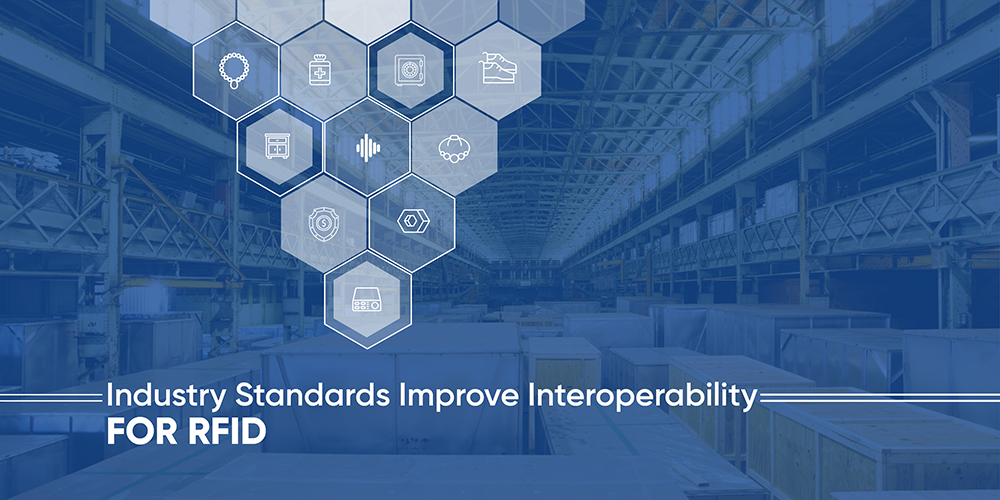
RFID4U has contributed to a discussion on RFID standards in the Asmag.com The Global Security Web magazine. You can see the whole article here: Industry Standards Improve Interoperability for RFID.
Introduction
Radio Frequency Identification (RFID) technology has transformed industries across the globe, from retail and healthcare to manufacturing and logistics. By enabling wireless data transfer through RFID tags and readers, businesses can track assets, streamline operations, and enhance security. However, as RFID adoption grows, so does the need for interoperability—the ability for different RFID systems to communicate seamlessly.
Without industry standards, RFID solutions may face compatibility issues, limiting their effectiveness. That’s why established standards ensure consistency, efficiency, and security, allowing businesses to integrate RFID seamlessly into their operations. In this blog, we’ll explore RFID interoperability, key industry standards, and their benefits across industries.
Understanding RFID Interoperability
What is Interoperability in RFID?
Interoperability in RFID refers to the ability of different RFID technologies, devices, and systems to work together regardless of the manufacturer or industry. This ensures that RFID tags, readers, and software solutions can communicate without compatibility issues, improving efficiency across businesses.
Challenges Faced Due to Lack of Standardization
Without industry standards, businesses face:
Benefits of Standardized RFID Solutions for Businesses
- Seamless system integration across different platforms and industries.
- Reduced operational costs by avoiding proprietary, vendor-specific solutions.
- Enhanced data accuracy for improved decision-making.
- Increased security through encryption and authentication protocols.
Key Industry Standards for RFID
To ensure interoperability, several global and regional standards regulate RFID technology. The most important ones include:
ISO/IEC Standards (ISO 18000 Series)
- Defines RFID frequencies and protocols for different applications.
- Used worldwide for supply chain management, access control, and asset tracking.
EPCglobal & GS1 Standards
- Provides guidelines for RFID-based inventory tracking in retail and logistics.
- Standardized Electronic Product Code (EPC) tags enable real-time supply chain visibility
FCC & ETSI Regulations
- FCC (Federal Communications Commission) governs RFID frequency usage in the U.S.
- ETSI (European Telecommunications Standards Institute) regulates RFID in Europe.
- Compliance ensures RFID devices operate without interference in different regions.
NFC Forum & EMVCo Standards
- NFC Forum & EMVCo Standards NFC (Near Field Communication) Forum sets global standards for contactless payments, transit passes, and mobile wallets.
- EMVCo ensures security and interoperability in RFID-based payment systems.
Benefits of RFID Standardization
Seamless Integration
Industry standards enable businesses to adopt RFID solutions without worrying about compatibility issues, ensuring a smooth transition across different systems.
Improved Security
Standardized encryption and authentication protocols protect financial transactions, personal data, and business information from cyber threats and fraud.
Cost Efficiency
Companies can reduce expenses by investing in widely accepted RFID solutions instead of proprietary systems that require costly customization.
Global Compatibility
Standardized RFID solutions ensure that businesses can track assets across borders, streamlining international trade and logistics.
Industry Applications of Standardized RFID
Retail & Supply Chain
Standardized RFID solutions have revolutionized retail and supply chain management by enabling automated inventory tracking, theft prevention, and optimized logistics. GS1 and EPCglobal standards allow seamless product identification, making supply chain operations more efficient. RFID-enabled self-checkout systems also enhance the shopping experience by reducing wait times and improving customer satisfaction.
Healthcare
RFID in Hospitals and healthcare facilities leverage standardized for patient identification, medication tracking, and equipment management. With strict compliance to industry regulations, RFID ensures secure, real-time data sharing across healthcare systems, improving patient safety and operational efficiency.
Manufacturing & Warehousing
Manufacturers and warehouses benefit from RFID by enabling real-time asset tracking, automating workflows, and enhancing inventory accuracy. Compliance with EPCglobal and ISO standards ensures smooth interoperability between suppliers and distributors, reducing losses and improving overall efficiency.
Banking & Payments
Contactless payments, transit cards, and mobile wallets like Apple Pay and Google Wallet rely on NFC Forum and EMVCo standards. These regulations ensure secure, seamless transactions both in the U.S. and globally, making RFID-powered financial services more reliable and widely accepted.
Conclusion
Industry standards play a crucial role in improving RFID interoperability, ensuring seamless integration, security, and efficiency. By adopting standardized RFID solutions, businesses in retail, healthcare, manufacturing, and finance can improve operations, reduce costs, and stay compliant with regulatory requirements. As technology evolves, AI, IoT, and blockchain will further enhance RFID’s capabilities, making it an essential tool for the future.